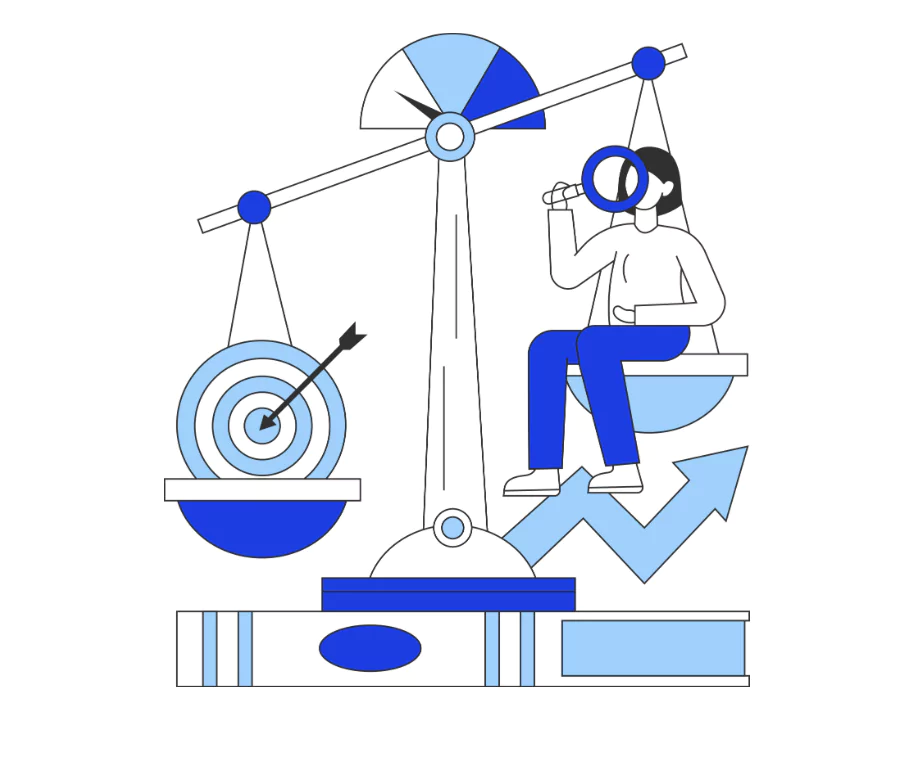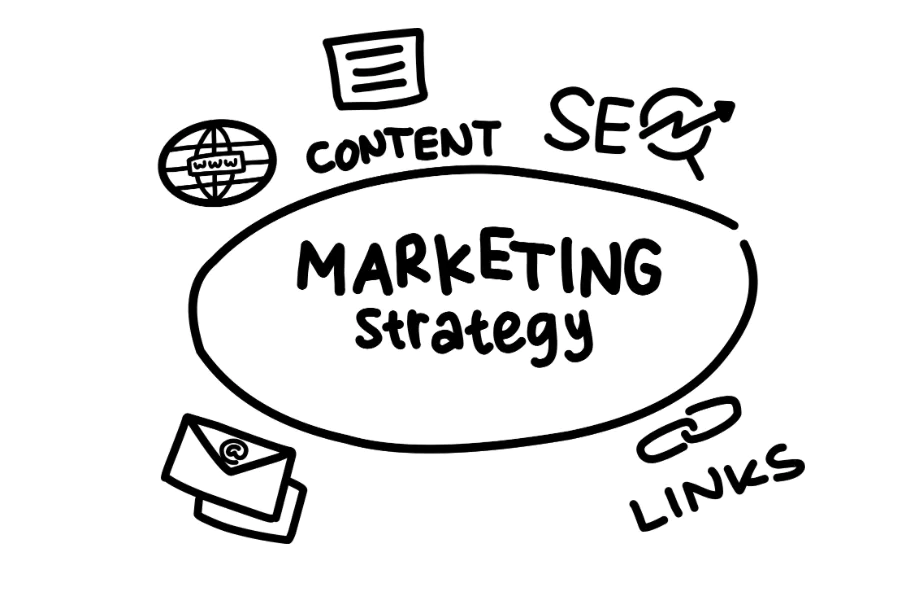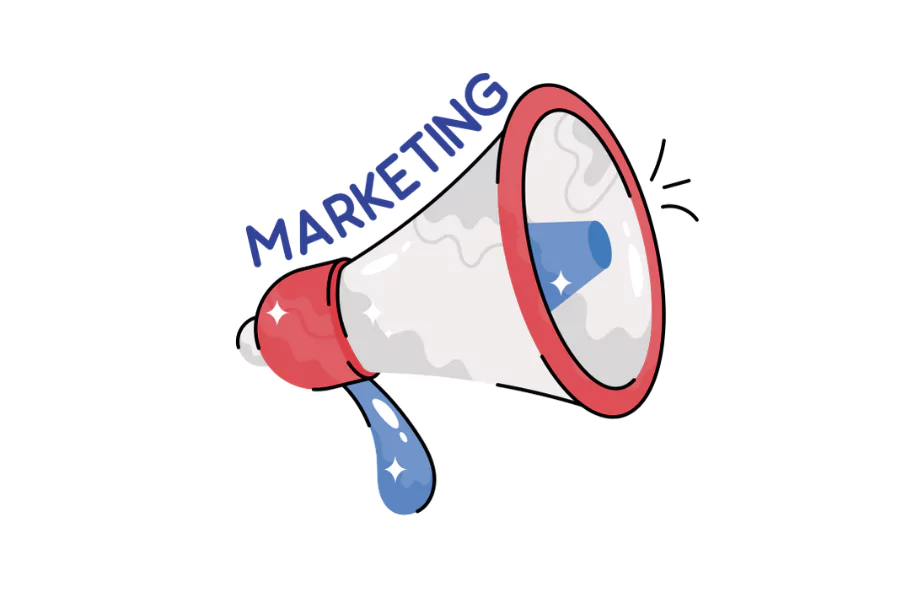Marketing Ethics are like the principles that let you understand the difference between right and wrong. Ethics are important for the smooth functioning of any organization with utmost fairness, transparency, and a cooperative environment. If an organisation follows the ethical principles in their marketing practices, there are high chances that they will have a high rate of retained customers and a loyal consumer and employee base.
In this blog, we will understand everything about marketing ethics starting from its meaning, followed by the types of marketing ethics, role, principles, and why it is important to practice ethical marketing.
What Are Marketing Ethics?
Marketing Ethics are the norms that guide the company’s promotional activities. A company’s main focus is to generate revenue and earn high profit but that’s not the only responsibility a business has, if you are selling a product or a service, you have to make sure that your customers’ rights are respected. A company must prioritize the practices of honesty, integrity and transparency.

Marketing Ethics are somewhat similar to the concept of CSR (Corporate Social Responsibility). CSR means that the business has certain responsibilities towards the consumers and stakeholders which they need to fulfill. It includes paying attention to the points like: treating and paying employees fairly, taking care of the environment, making possible charitable donations, etc.
Read More: A/B Testing in Digital Marketing: How To Set Up A/B Testing In A Campaign
Why Are Ethics Important In Marketing?

Marketing Ethics are important because they safeguard consumer rights, ensuring honesty and transparency in the promotional activities of an organisation. It also helps and acts as a guide in team discussions, making decisions and taking various initiatives for the growth of the organisation. Integrating Marketing Ethics helps businesses to achieve the following goals:
Consumer Trust
Marketing Ethics ensures that the company is reliable and it builds the trust of the consumers and when customers are satisfied with how the organization performs, they are more likely to establish long-term relationships with them.
Brand Reputation
Fairness and transparency help a brand to improvise its image and reputation in the market. Ethical behaviour attracts consumers as well as employees and it helps you establish brand image.
Read More: Hurry! 5 FREE Digital Marketing Courses in 2025 – Enrollment Closing Soon!
Employees’ Well-Being
Just how ethical behaviour towards consumers is important, similarly treating your employees fairly is also important and it guarantees you employee support and long-term relationship with employees. A company must support its employees, pay them timely and ensure a healthy work-life balance.
Social Responsibility
Marketing ethics reminds you of your responsibilities towards the society and environment. Consumers expect businesses to be socially responsible and take care of the environment. As an organisation, it is your responsibility to contribute positively towards society.
Role Of Ethics In Marketing

Marketing Ethics plays an important role in promoting fairness, honesty and transparency in the organization. It also builds trust among consumers, it even helps you to reduce legal and reputational risks.
1. Reduces Risk
Incorporating ethics in your organisation helps you to reduce legal and reputational risks as it establishes brand image and reputation.
2. Promotes Fairness And Honesty
Marketing Ethics also promotes fairness, honesty and transparency among the employees as well as among consumers. It means reducing the chances of incorrect decisions during the whole process starting from manufacturing to the sale of the product.
3. Builds Trust
Following ethics in marketing ensures building of trust between the consumers and the organisation that leads to long-term relations. Because if a consumer trusts an organisation, he/she is most likely to build long-term relationships with them.
What Are The Types Of Ethical Marketing?
There are mainly two types of Ethical Marketing which should be used in an organisation to promote fairness, ensure trust and credibility and enhance your brand reputation.
1. Positive Marketing Ethics
Positive Marketing Ethics means sticking to the ethical ideals and ensuring that the organization performs in a way that it benefits people: consumers, employees, and the society.
It not only focuses on how the users will be benefited but also on following ethics so that greater good for greater numbers of people can be done, addressing various ethical challenges.
2. Normative Marketing Ethics
Normative Marketing Ethics means conducting research of ethical concepts that should be used in marketing and executing them in the organizational functioning. Normative Marketing Ethics helps you in making ethical decisions and aligning with modern organisational standards.
![]() Join Our Digital Marketing WhatsApp Channel
Join Our Digital Marketing WhatsApp Channel
Principles Of Ethical Marketing

There are various principles that should be followed in your marketing practices to create an ethical work environment.
1. Honesty
The business organisations should be honest with their employees, teammates about the product, service and current business conditions to remain on the same page and build trust. It is important that an honest conversation is done even with the consumers regarding the product to retain more consumers.
Read More: Google FREE Digital Marketing Course With Certificate For Everyone – Limited Seats Left 2025!
2. Transparency
Many people confuse transparency with honesty, but both of these are different principles that must be followed in an organisation for smooth functioning. It is essential that you remain transparent with your customers. That means that you can share information regarding your product development process without any gatekeeping.
Although there is some confidential information about every business that cannot be shared, there are many other factors of a business which can be shared with the audience.
3. Accountability
Accountability refers to answerability. Knowingly or unknowingly, if your company has made a mistake it is the responsibility of the head to take responsibility for the same. You can admit your mistakes, apologize to the audience, communicate effectively with the consumers, learn and correct your mistakes.
4. User Privacy
User Privacy is the key principle when talking about ethical considerations. You must respect the user’s privacy and not use cookies for unnecessary tracking.
You must also use high security systems and softwares to protect the user’s data from getting leaked. Ethical marketers only collect the required data from users and even take consent before taking or using their data.
5. Sustainability
Sustainability is a practice which should be used by businesses and focus on environmental, economical, and social sustainability.
- Environmental sustainability: This principle means that the business does not harm the environment, and makes decisions which help in protecting the environment.
- Economical sustainability: Economic stability means that running a business in a financially stable manner. This involves pricing your products fairly, paying employees timely and creating economic benefits for everyone.
- Social sustainability: Social sustainability means treating your employees, stakeholders, consumers and everyone with respect. It means that the organization creates a healthy work-life balance and provides employees monetary as well as non-monetary benefits from time to time.
Read More: How to Use AI in Social Media Marketing? 7 Best AI Tools for Social Media Creation
Ethical Marketing Examples
Some of the most popular brands famous for adopting marketing ethics in their business are:
- The Body Shop: The Body Shop is a cosmetic brand widely known for creating products which are cruelty-free, and perform fair trade practices. The Body Shop has always been against animal testing since its launch.
- Amul – The Taste of India: Amul is a brand that provides dairy products which uses truthful advertising and widely promotes farmers’ welfare and supports the Indian dairy cooperatives.
- Tata Group: Tata is known widely for the transparency it maintains with its users and the socially responsible campaigns it conducts. “Jaago Re” campaign by Tata Tea raised awareness about voting and corruption among people.
Also Read:
- What is Marketing Funnel? Stages, Examples & How to Optimize Funnel
- 4 Ps of Marketing, How to Use 4 Ps of Marketing & Importance
- What is Marketing Concept? 5 Main Types, Examples & Importance
- Marketing Process, Definition, Examples, 5 Steps & Importance
Build Digital Marketing Skills With PW Skills
If you are someone who is looking for a successful career in the Digital marketing field can enroll in our Digital Marketing Course. You can get career opportunities as an SEO Professional, Marketing consultant, content manager, and more. With PW Skills Digital marketing course you will get valuable recording as well as live sessions.
Also, get hands on learning along with practice exercises, module assignments, quizzes, and more. Learn industry oriented skills with relevant training in SEO, content marketing, social media strategy, and performance analytics. Build your strong portfolio with job ready skills and experience in hands-on learning.


